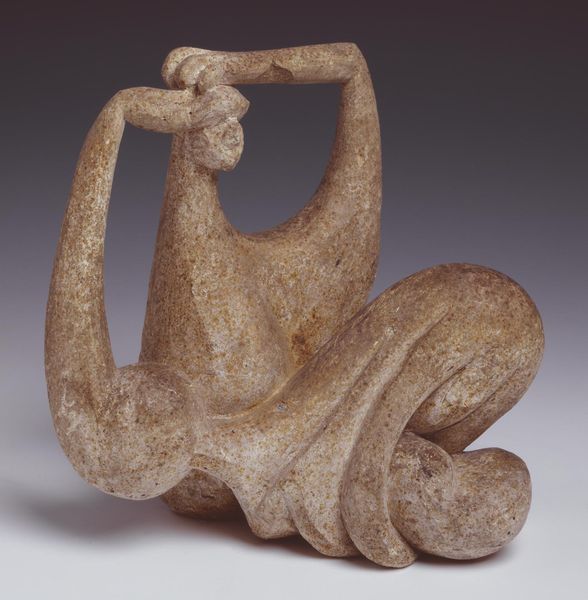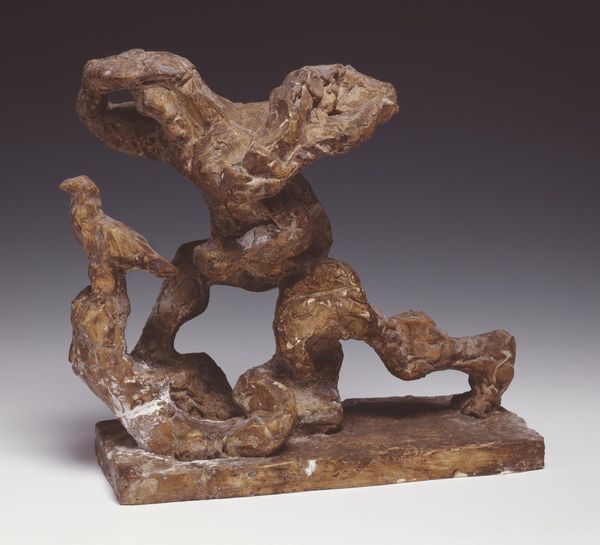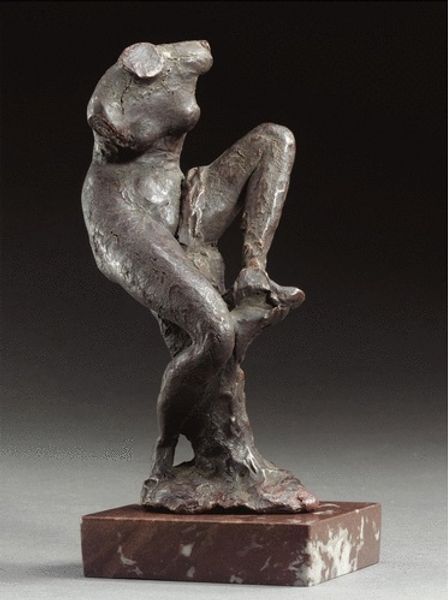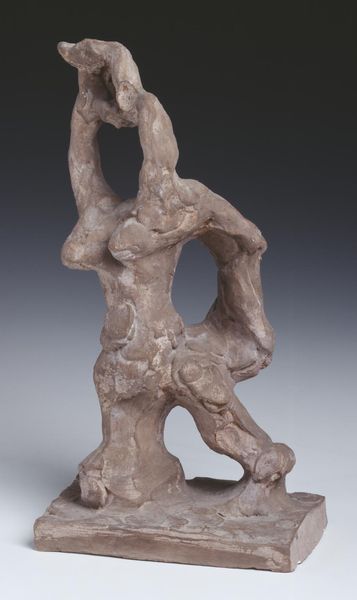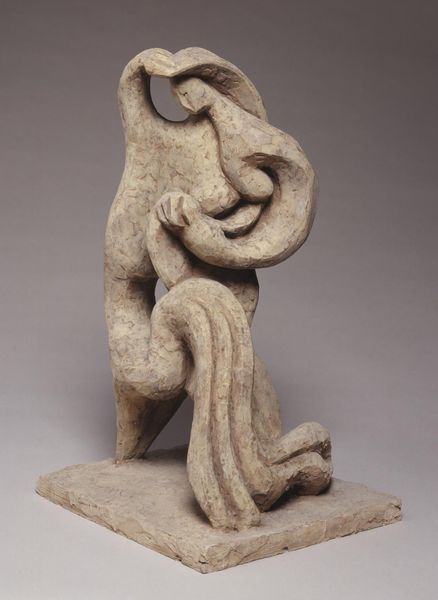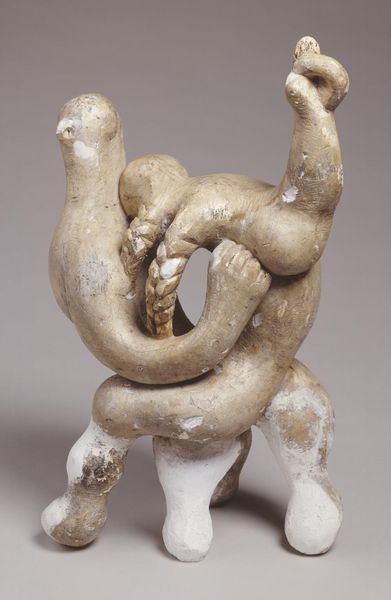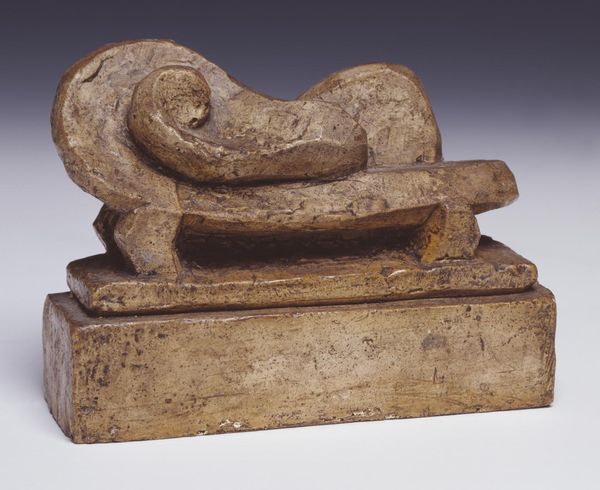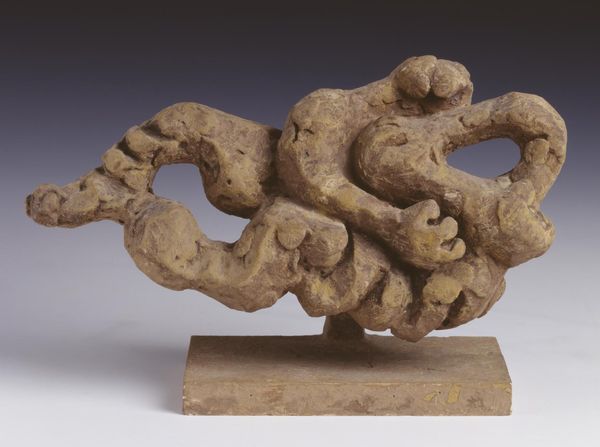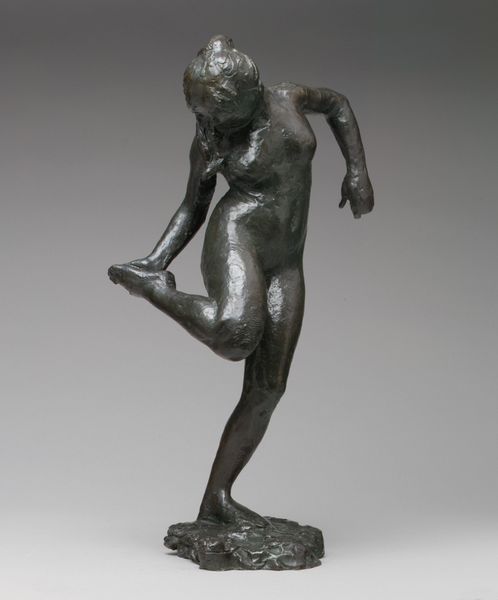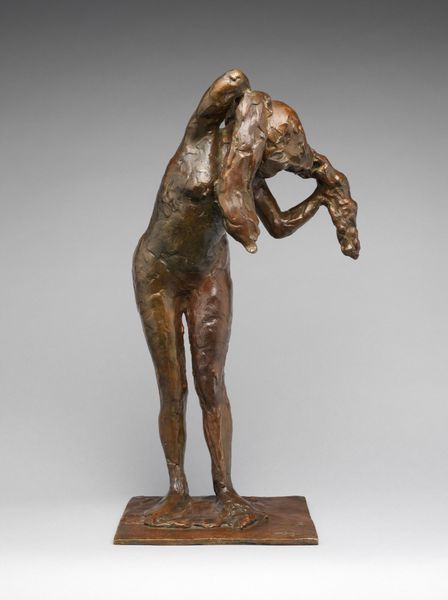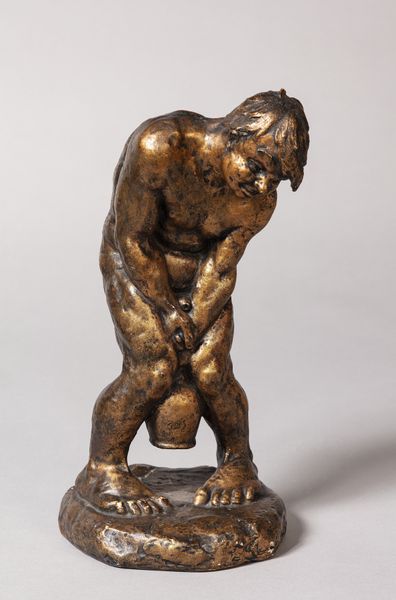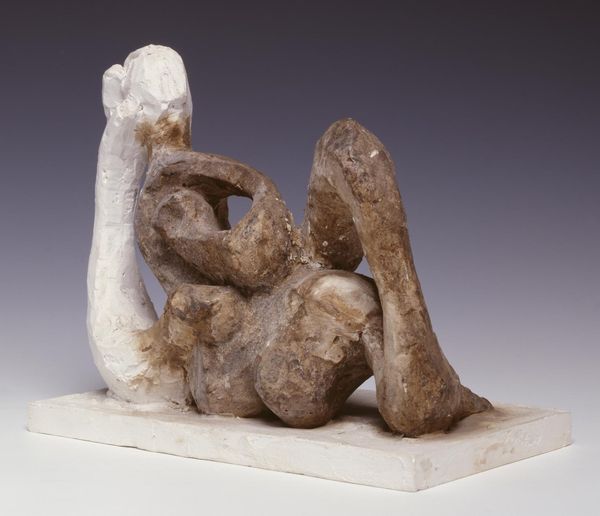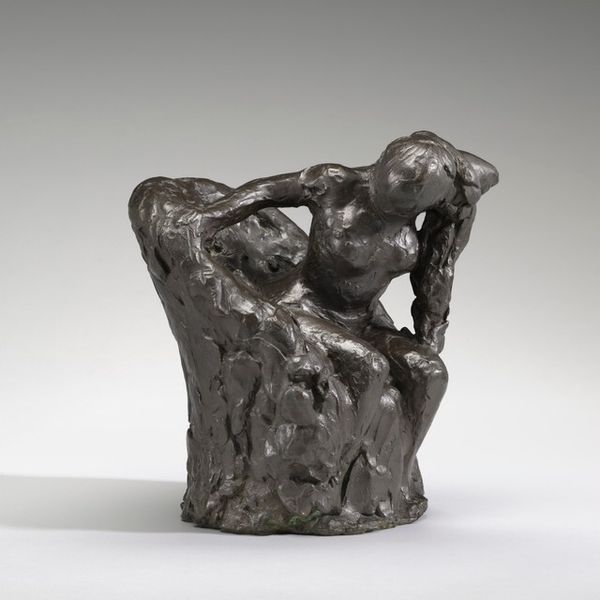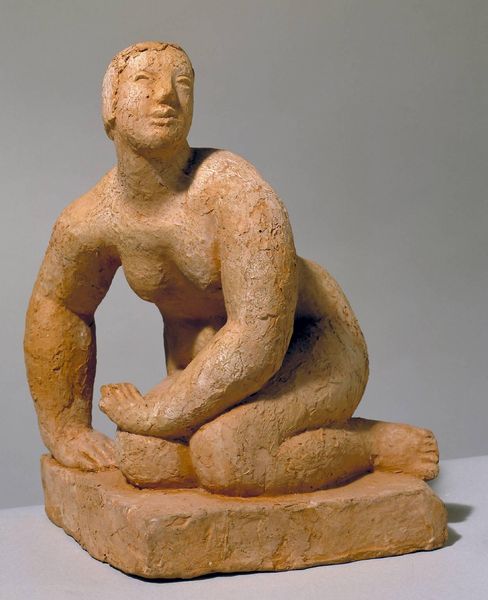
Dimensions: object: 162 x 230 x 103 mm
Copyright: © The estate of Jacques Lipchitz, courtesy, Marlborough Gallery, New York | CC-BY-NC-ND 4.0 DEED, Photo: Tate
Curator: Jacques Lipchitz’s small plaster sculpture, titled "Variation on the Theme of Hagar," presents a figure of raw anguish. Editor: Immediately, I see the weight of despair. The figure is contorted, almost fetal, as if trying to disappear into itself. Curator: Hagar’s story, found in Genesis, speaks of displacement and desperation. Lipchitz renders her plight using roughly textured plaster, emphasizing the physicality of her suffering. Editor: Indeed, the material itself speaks of constraint. Plaster, in its making, solidifies to hold form, perhaps mirroring Hagar's own attempts to hold herself together amidst hardship. Considering the history of plaster casting, it also alludes to the means by which cultural narratives are shaped and replicated. Curator: The hand of the artist is so present. You can practically feel the labor involved in shaping this emotional form. Editor: Absolutely, and in contemplating Hagar's narrative through this artwork, it compels us to confront contemporary issues of displacement and maternal resilience. Curator: This piece really shows how the manipulation of material can heighten a work's narrative power. Editor: It encourages us to reflect not just on the biblical text, but its relevance to contemporary struggles for survival and dignity.
Comments
tate 9 months ago
⋮
http://www.tate.org.uk/art/artworks/lipchitz-variation-on-the-theme-of-hagar-t03527
Join the conversation
Join millions of artists and users on Artera today and experience the ultimate creative platform.
tate 9 months ago
⋮
Lipchitz made this plaster model in 1948, in response to the foundation of the state of Israel. In the Old Testament, Hagar is the mother of Abraham's illegitimate son Ishmael. Both mother and son are depicted here. Hagar and Ishmael are exiled by Abraham’s wife Sarah, mother of Isaac. Drawing on biblical interpretations, here Lipchitz associates Ishmael with Islam and Isaac with Judaism. He depicts Hagar and Ishmael in exile as ‘a prayer for brotherhood between the Jews and the Arabs. It is a concept which combines tragedy and suffering with tenderness and hope for the future.’ Gallery label, February 2024
